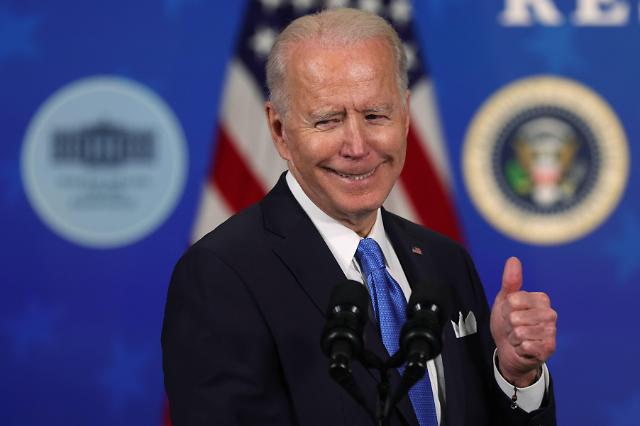
[사진=게티이미지뱅크]
Ahead of the first summit of the Quad (the US, Japan, India and Australia security council), which is called “anti-China solidarity,” the United States has implemented new export restrictions on some suppliers of Huawei in China. US President Joe Biden’s public pressure has begun in earnest.
On the 11th (hereafter local time), Reuters quoted government sources that the Biden administration decided to apply a method from this week to limit the supply of items used in Huawei’s flagship 5G communication (5G) device, China’s flagship business Reported. A major foreign press explained that this makes the conditions for export approval that have already been made even more strict.
The main point of this regulation is that the export of parts for Huawei 5G equipment, such as semiconductors and antenna batteries, is more clearly prohibited. For this reason, some companies that were allowed to export to Huawei are also subject to more uniform export restrictions.
Reuters said, “This measure will also disrupt the existing contracts signed between suppliers and Huawei in accordance with past export approvals,” said Reuters. ”He explained.
“This measure shows that the Biden administration is strengthening its strong attitude toward exports to Huawei, which is regarded as a national security threat,” he said.
This regulation in the United States draws particular attention as it comes ahead of the first summit of Quad, which is evaluated as’anti-China solidarity’. Quad is scheduled to hold its first summit meeting on the 12th with security councils in four countries including the United States, Japan, India and Australia.
Bloomberg said it “shows the Biden administration’s willingness to tighten export regulations under the former administration of Donald Trump.”

US President Joe Biden. [사진=AFP·연합뉴스]
The US begins its anti-China diplomatic war with the quad summit. After President Biden’s participation in the quad summit, US Secretary of State Tony Blincoln and US Secretary of Defense Lloyd Austin will visit Japan and South Korea on the 15th-17th to discuss the Chinese issue.
On the 18th in Alaska, Secretary Blincoln met with White House National Security Adviser Jake Sullivan, Yang Jietsu, Chinese Communist Party diplomatic politician, Wang Yi, a state council member of the Chinese Foreign Affairs Bureau and the head of foreign affairs. Conduct the meeting.
The United States has suggested that the focus of this diplomatic activity by senior Biden administration officials is on’China’.
US State Department spokesman Ned Price said at a press briefing today that China-related matters will also be a major agenda for Blincoln and Austin’s overseas trips.
“Of course, a coordinated approach to China will be one of the agendas for the bilateral talks,” said Price. “The United States shares common interests and values with Korea and Japan.”
The White House in the United States said it would not look after China at the high-level US-China talks scheduled on the 18th, suggesting that the conflict between the two countries could intensify. In particular, it predicted that the war between the United States and China will continue, focusing on democracy and human rights issues such as Hong Kong and Taiwan.
White House spokesman Jen Saki said of the talks, “I will not hesitate to hold back our concerns and issues, whether in Taiwan, in attempts to deter democracy in Hong Kong, or concerns about economic relations.”
Saki said that the talks would be difficult, but he would not look at the situation in China. At the same time, expectations for seeking cooperation with China were also revealed.
